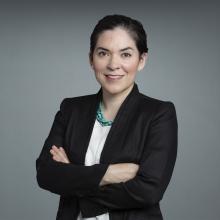How did you choose developmental science as a career?
I chose developmental science because of my strong interest in academic achievement, public policies, and maternal and child mental health. Exploring academic achievement and mental health through theories such as Bronfenbrenner’s ecological systems theory, Conger’s family stress model & García Coll’s integrative model for the study of developmental competencies in minority children drew me to developmental science.
Is there a mentor or mentors who have been instrumental to your career path so far, and, if so, who and how?
I’ve been fortunate to have several mentors that have been instrumental to my career path. My first grade teacher, Patricia Peinado, had a practice of following one student every year. I was fortunate to be one of those students. She checked in on me every year through college and was at my college graduation. Her mentorship was key as my parents were only able to attend elementary school in Mexico, and as such, they had limited knowledge of the United States academic system. I’ve also been fortunate to learn formally and informally – hidden and explicit curriculums - from Drs. Jeanne Brooks-Gunn, Laurie Brotman, Esther Calzada, Linda Halgunseth, Cynthia García Coll, Carola Suárez-Orozco, Lisa Fortuna, Carmen Valdez, Cecilia Ayón, Lisseth Rojas Flores, Kalina Brabeck, and Chau Trinh-Shevrin.
What advice would you give to a prospective graduate student thinking about beginning their Ph.D. studies in the developmental science field?
The advice I give to anyone who asks my perspective on getting a Ph.D. is that it’s really important to have a “why.” “Why do you want a Ph.D.?” Your "why" has to be strong enough to get you through challenging times as a graduate student, especially if you are a first generation student and/or if you come from a household with limited economic resources (this advice is based on my own experience as a first gen student from a household with limited economic resources).
What is your best SRCD memory?
Meeting Dr. Mona Abo-Zena! Mona and I were paired as roommates as part of SRCD's Millennial Scholars Program many, many years ago (in Chicago) when we were both grad students.
Why did you join the Latinx Caucus and how does it facilitate connection among members all year long?
I joined the Latinx Caucus because I was seeking community. I wanted the opportunity to connect with other Latinx scholars not only about developmental research but also about our experiences as researchers. The monthly email from the Latinx Caucus keeps us abreast of topics that may be of interest, which I definitely appreciate!
